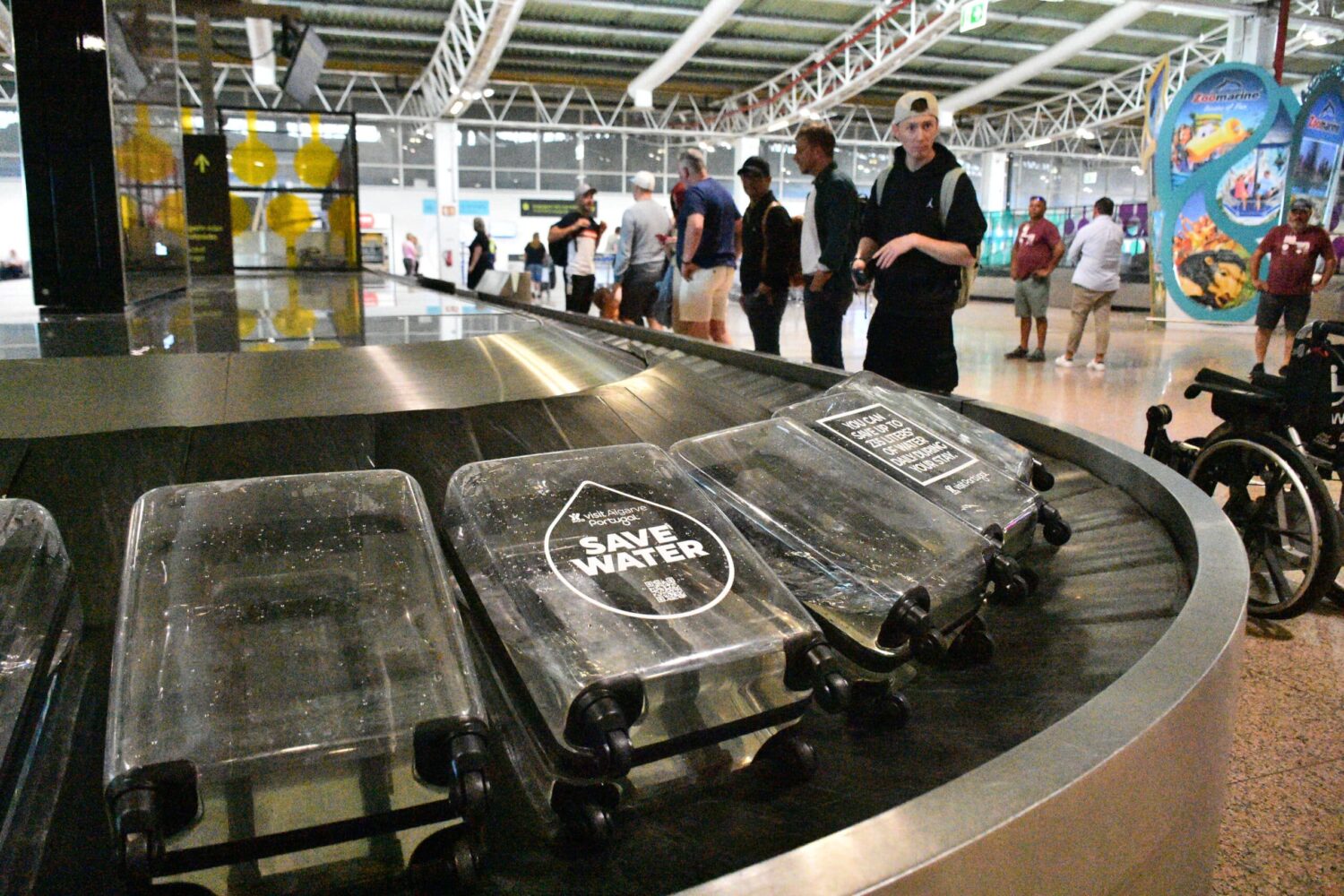“But it is possible to do more,” minister says
Portugal’s Minister of Environment and Energy has celebrated the success of the water-saving measures implemented in the Algarve to combat drought, which have led to “very significant water savings.”
However, Maria Graça de Carvalho stresses that the region can go even further in its attempts to use water more efficiently.
“It was promised that at the end of August, we would reassess the situation in the Algarve. This is being done, and fortunately, it is going well. We will see what the Portuguese Environment Agency (APA) concludes, but there have been very significant savings” in the agriculture, tourism, and human consumption sectors, she stated.
The minister was speaking to reporters on the sidelines of the inauguration of the traditional August Fair (Feira de Agosto) in Grândola, Setúbal.
“We are working closely with the municipalities to reduce boreholes, funding municipalities for projects to reduce water leaks because there are municipalities with 30% to 40% water losses, increasing the capacity of some facilities, and some existing dams, such as Odeleite, using more recycled water for golf courses,” she said, detailing the efforts underway to achieve even more significant savings.
In addition to these measures, the government will “invest in new water sources, such as the Algarve desalination plant,” Maria Graça de Carvalho said.
These measures are considered vital as the Algarve is, along with the “western coast of the Alentejo”, the region that most worries the government when it comes to drought.
“The western coast of the Alentejo fortunately has seen great development, attracting a lot of industrial investment in Sines, agricultural investment in the Mira region (Odemira), and tourism investment, but all of this requires water,” she argued.
In her view, “new water sources” are needed, and the construction of “a desalination plant” in the Alentejo coastal region is one of the solutions still under consideration.
“One of the things that becomes evident is that the industrial investments in Sines, namely the hydrogen projects, will need to have their own water solution, because hydrogen is produced from renewable energy, but also from water,” she noted.
The minister took advantage of her presence at the inauguration of the August Fair to announce that the Portuguese Environment Agency will work together with the Grândola City Council to ensure the creation of two to three more beaches with access and surveillance in the area, responding to a request from the municipality.
About 40% of mainland Portugal was experiencing moderate and severe meteorological drought at the end of July, according to the Portuguese Institute for Sea and Atmosphere (IPMA) in its climate bulletin for the past month.
According to the document, released on Monday, there was an increase in the area affected by moderate and severe meteorological drought in the southern region, affecting the districts of Faro, Beja, Évora, Setúbal, and Portalegre.
According to IPMA, the month of July in mainland Portugal was classified as hot in terms of air temperature and normal in terms of precipitation.


























